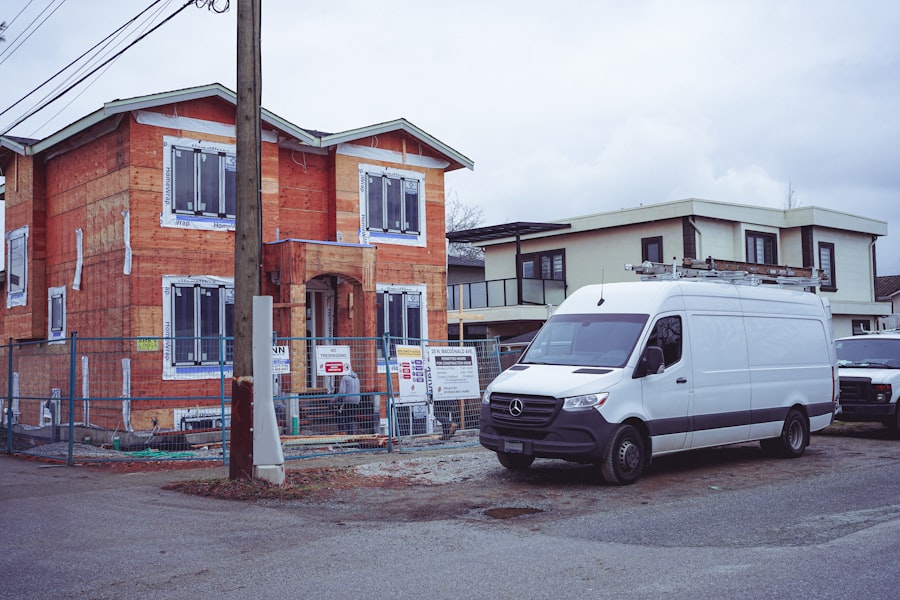Rent to own mobile homes represent a unique opportunity for individuals and families seeking homeownership without the immediate financial burden of a traditional mortgage. This arrangement allows potential buyers to rent a mobile home for a specified period, with the option to purchase the home at the end of the rental term. The structure of these agreements can vary significantly, but they typically involve a portion of the monthly rent being credited toward the eventual purchase price.
This model is particularly appealing in today’s housing market, where rising prices and stringent lending requirements can make homeownership seem out of reach for many. The concept of rent to own is not limited to mobile homes; it is a common practice across various types of real estate. However, mobile homes offer distinct advantages, such as lower initial costs and greater flexibility in location.
Mobile homes can be placed in parks or on private land, providing options for those who may not want to commit to a permanent foundation. Understanding the nuances of this arrangement is crucial for potential buyers, as it involves navigating both rental and purchase agreements, which can be complex and require careful consideration.
Key Takeaways
- Rent to own mobile homes offer a pathway to homeownership by combining renting with an option to buy.
- Locating rent to own mobile homes involves researching local listings and working with specialized dealers or brokers.
- Benefits include lower upfront costs, building equity over time, and flexibility compared to traditional home buying.
- Important considerations include contract terms, maintenance responsibilities, and verifying the mobile home’s condition.
- Understanding financial and legal aspects, along with following clear steps and tips, is crucial for a successful rent to own experience.
Finding Rent to Own Mobile Homes Near Me
Locating rent to own mobile homes in your vicinity can be accomplished through various channels. Online platforms such as Zillow, Craigslist, and specialized real estate websites often list available properties, including those under rent-to-own agreements. These platforms allow users to filter searches based on location, price range, and specific features, making it easier to find a suitable mobile home that meets individual needs.
Additionally, local real estate agents can be invaluable resources; they often have insider knowledge of properties that may not be widely advertised and can assist in negotiating terms that are favorable to both parties. Community bulletin boards and local newspapers can also serve as effective tools for finding rent to own opportunities. Many mobile home parks advertise available units directly within their communities, and word-of-mouth referrals can lead to hidden gems that are not listed online.
Networking within local community groups or social media platforms can yield leads on available properties. Engaging with local real estate investment groups may also provide insights into upcoming opportunities in the rent-to-own market.
Benefits of Rent to Own Mobile Homes

One of the primary benefits of rent to own mobile homes is the flexibility it offers prospective buyers. Unlike traditional home purchases that require a significant upfront investment, rent-to-own agreements typically require a smaller initial payment, making it more accessible for individuals who may not have substantial savings. This arrangement allows renters to live in the home while they save for a down payment or improve their credit score, ultimately positioning them for a more favorable mortgage when they decide to purchase.
Additionally, rent to own agreements often provide an opportunity for renters to test the property before committing to a purchase. This trial period allows potential buyers to assess not only the home itself but also the surrounding community and amenities. If issues arise during the rental period—such as maintenance problems or neighborhood concerns—renters have the option to walk away without the long-term commitment associated with traditional home buying.
Furthermore, as part of the agreement, renters may have the ability to negotiate repairs or improvements with the seller, ensuring that the home meets their standards before finalizing the purchase.
Considerations Before Choosing a Rent to Own Mobile Home
| Consideration | Description | Key Metrics | Importance Level |
|---|---|---|---|
| Monthly Rent Payment | Amount paid monthly towards rent and eventual ownership | Average: 500 – 1200 | High |
| Option Fee | Upfront fee to secure the option to buy the home later | Typically 1% – 5% of home price | Medium |
| Lease Term Length | Duration of the rent-to-own agreement | 12 – 36 months | High |
| Maintenance Responsibilities | Who is responsible for repairs and upkeep during lease | Tenant vs Landlord obligations | High |
| Purchase Price | Agreed price to buy the mobile home at lease end | Fixed or market value at purchase time | High |
| Credit Impact | Effect of rent-to-own on tenant’s credit score | Varies by reporting practices | Medium |
| Down Payment Requirements | Initial payment required to enter rent-to-own agreement | Varies, often 5% – 10% of home price | Medium |
| Park or Land Fees | Monthly fees for mobile home park or land rental | 100 – 400 per month | High |
| Legal and Contract Terms | Clarity and fairness of contract clauses | Review by legal professional recommended | High |
Before entering into a rent-to-own agreement for a mobile home, several critical considerations must be taken into account. First and foremost is the financial aspect; potential buyers should thoroughly evaluate their budget and ensure they can afford both the monthly rent and any additional costs associated with homeownership, such as property taxes, insurance, and maintenance fees. It is essential to have a clear understanding of how much of the rent will be applied toward the purchase price and what the total cost will be at the end of the rental term.
Another important factor is the condition of the mobile home itself. Prospective renters should conduct a comprehensive inspection of the property before signing any agreements. This includes checking for structural integrity, plumbing issues, electrical systems, and overall cleanliness.
Engaging a professional inspector can provide peace of mind and help identify any potential problems that could lead to costly repairs down the line. Additionally, understanding the terms of the lease agreement is crucial; potential buyers should be aware of their rights and responsibilities during the rental period and any conditions that could affect their ability to purchase the home later.
Steps to Take When Renting to Own a Mobile Home
The process of renting to own a mobile home involves several key steps that prospective buyers should follow to ensure a smooth transaction. Initially, it is advisable to conduct thorough research on available properties and familiarize oneself with local market conditions. Once a suitable mobile home is identified, potential renters should arrange for an inspection and review all relevant documentation related to the property.
After confirming that the mobile home meets their needs and expectations, renters should negotiate terms with the seller. This includes discussing the length of the rental period, monthly payment amounts, and how much of each payment will go toward the eventual purchase price. It is also essential to clarify any maintenance responsibilities during the rental period and what happens if either party wishes to terminate the agreement early.
Once both parties reach an agreement, it is crucial to have everything documented in writing to protect against misunderstandings or disputes in the future.
Financial Aspects of Rent to Own Mobile Homes

Understanding the financial implications of rent-to-own agreements is vital for anyone considering this option. Typically, these arrangements require an upfront option fee—often ranging from 1% to 5% of the purchase price—which secures the right to buy the home at a later date. This fee is usually non-refundable but may be credited toward the purchase price if the renter decides to buy.
Monthly payments are generally higher than standard rental rates because they include an additional amount that goes toward building equity in the home. It is also important for potential buyers to consider how their credit score may impact their ability to secure financing at the end of the rental term. Many sellers will conduct credit checks before entering into a rent-to-own agreement, so individuals should take steps to improve their creditworthiness if necessary.
Additionally, renters should budget for other costs associated with homeownership, such as property taxes and insurance premiums, which can add up significantly over time. Understanding these financial aspects will help ensure that individuals are prepared for both their immediate rental obligations and future ownership responsibilities.
Legal Aspects of Rent to Own Mobile Homes
The legal framework surrounding rent-to-own agreements can be complex and varies by state or locality. It is crucial for potential buyers to understand their rights and obligations under these contracts before signing anything. A well-drafted rent-to-own agreement should clearly outline all terms, including payment schedules, maintenance responsibilities, and conditions under which either party can terminate the contract.
It is advisable for renters to seek legal counsel or consult with a real estate professional who specializes in these types of agreements to ensure that their interests are protected. Additionally, understanding local laws regarding mobile homes is essential. Some jurisdictions have specific regulations governing mobile home parks and tenant rights that could impact a rent-to-own arrangement.
For instance, some areas may have laws that protect tenants from eviction without cause or require landlords to maintain certain standards of habitability. Being informed about these legal aspects can help renters navigate potential challenges and advocate for their rights throughout the rental period.
Tips for Successfully Renting to Own a Mobile Home
To maximize success in a rent-to-own arrangement for a mobile home, prospective buyers should approach the process with diligence and preparation. One key tip is to maintain open communication with the seller throughout the rental period. Establishing a good rapport can facilitate negotiations regarding repairs or modifications needed in the home and create a more positive experience overall.
Another important strategy is to keep detailed records of all transactions related to the agreement, including payment receipts and correspondence with the seller. This documentation can serve as evidence in case disputes arise later on regarding payments or responsibilities outlined in the contract. Additionally, renters should regularly assess their financial situation during the rental period; this includes monitoring credit scores and saving diligently for any down payment required at the end of the lease term.
Finally, it is beneficial for renters to educate themselves about homeownership responsibilities beyond just making monthly payments. Understanding maintenance tasks—such as lawn care or minor repairs—can help prepare individuals for life as homeowners and ensure they are ready when it comes time to finalize their purchase. By taking these proactive steps, individuals can navigate their rent-to-own journey with confidence and ultimately achieve their goal of homeownership through mobile homes.



